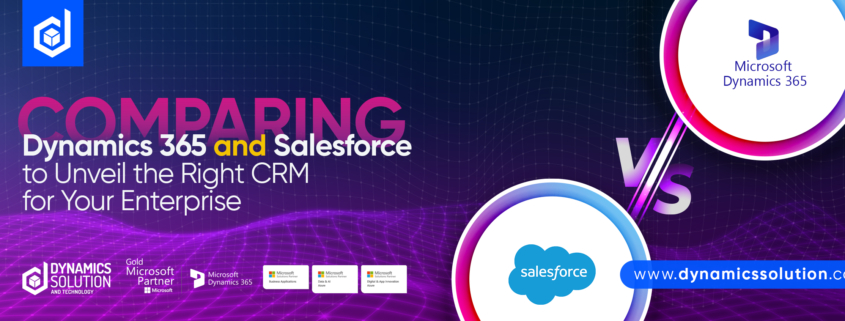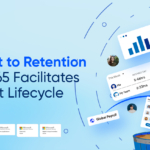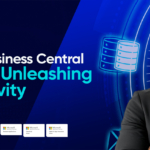Customers are the key to the success of any organization. Attracting new customers, converting leads to long-term customers, and retaining existing loyal customers, are essentially important. It is one of the core reasons that businesses have set up separate departments and designated roles and responsibilities in their organization to manage customer relationships and to give them an outclass experience,
Now, in this digitally evolving landscape of businesses, along with other digitalized operations, the horizon of customer management has also stepped up and automated. The market has come up with Customer Relationship Management (CRM) solutions and software that are very effective in streamlining and improving catering to customers’ needs. According to Gartner Inc., almost 80% of industry leaders surveyed use CRM software, and the market size of CRM software is expected to grow by 14% by 2025.
CRM software can streamline your entire workflow and processes to improve your growth by enabling a better understanding of the customer and providing them with exactly what they need. They are essential to help your business grow strong and flourish.
Navigating Among the Top-Tier CRM Software
Top-tier CRM software must provide you with robust features, the ability to extend its flexibility and scalability to customize it to meet your needs and requirements and facilitate you and your customer equally.
In the market of managing customer relationships, Microsoft Dynamics 365 and Salesforce stand as the two most competent platforms in the list of top contenders due to their features, functionality, and tools. However, both have their own strengths, weaknesses, and competitive edge.
This blog goes for a Dynamics 365 Vs. Salesforce comparison; evaluates their key features, pricing, packages, and benefits that will help you to make an informed decision for your business. Let us get started with this enthralling journey.
An Overview of the Top CRM Contenders Dynamics 365 and Salesforce
Microsoft Dynamics 365 is a comprehensive suite that encompasses both CRM and ERP, bringing all the tools and solutions you need for your business on a single platform. The state-of-the-art solution is designed to integrate seamlessly with other Microsoft products like Microsoft 365, Power BI, Azure, and other related applications, making it a superior choice for businesses who are considering investing in the Microsoft ecosystem. This data-driven solution equips you with tools that seamlessly manage, track, and keep a record of your customers that have the potential to make a difference for your brand. This collective information gives your teams immediate access to the data wherever and whenever needed. The module is offered for different domains including sales, marketing, finance, and operation which covers the entire scope of your business.
On the other hand, if we look at the other top-performing CRM, Salesforce, it is a little old in the market and one of the pioneers who introduced Software as a Service (SaaS). Providing a whole suite of cloud-based solutions, it also doesn’t leave any of your domains untouched, covering a vast spectrum of operations, third-party solutions, and tools. It provides services for businesses of any size and industry. It is renowned for its robust features like AI tool, Einstein, and automation capabilities that make the interface user-friendly, allowing you to easily adapt and engage with the platform.
Comparing the Key Features of Dynamics 365 CRM Vs. Salesforce
Both platforms have their high-tech functionalities that are their strengths that give them a competitive edge over each other, or some complexities appear as loopholes for the ones striving for better CRM. This section explains the key features of both solutions.
Interface and User Experience
The main purpose of these solutions is to streamline your operations to improve your efficiency and support your productivity. Dynamics 365 facilitates getting familiar with the interface as it aligns with the other Microsoft products. The dashboards can personalize according to need, making navigation across platforms very easy and it allows to get role-specific dashboards so that people with different roles in the same organization can have their interface accustomed to their role.
The interface of Salesforce is not only modern but also engaging and interactive. The focus of Salesforce is to make it accessible and easy to use for non-technical users without needing some specialized skills. It can easily be customized with a drag-drop approach, and it provides you with training resources so that you can make maximum use of the provided features.
Integration Capabilities
It is one of the common elements, no matter if you are opting for Dynamics 365 or Salesforce for CRM purposes. They can integrate the products and tools of their ecosystem seamlessly, enhancing productivity by unifying all applications on a single platform. Dynamics 365 CRM integrates Outlook, Teams, SharePoint, and other cloud solutions. On the other hand, Salesforce integrates tools like Slack, Mailchimp, and QuickBooks, and this with a non-Microsoft Environment improving collaboration, communication, and data sharing in the organization.
Leveraging Artificial Intelligence and Automation
Microsoft Dynamics 365 leverages Power Automate to take a step forward to optimize your time and work order by automating your routine tasks and integrating Power BI for improved data and analytics for your customer management. Similarly, the embedded AI tools in Microsoft streamline forecasting and analysis to give a better direction to your business.
For Salesforce, Einstein is one of the key AI tools deep-rooted into the core of the platform, which can provide analytics, support natural language usage, and incorporate machine learning to understand, decipher, and utilize the data to predict customer’s approach for managing customer relationships.
Customization and Scalability
This is a common feature of Salesforce and Dynamics 365 CRM. Dynamics 365 offers Power Platform which has Power Apps that allow you to customize applications with a low-code, no-code approach that allows you to automate your workflow and create custom solutions without having years of experience in the developing domain.
In Salesforce, you can customize with point-and-click tools and Apex programming language. AppExchange gives you components that you can integrate with the platform or other pre-developed applications countless in number, that you can opt from.
As far as the growth of your business is concerned, both can scale to the growing size and needs of your organization.
Prices and Packaging
The pricing offered by Dynamics 365 is very flexible and easy to go with based on a modular approach. You do not need to purchase the whole suite. Rather you can go for the specific application that you need. They vary based on the number of users, the module you are using, the type of subscription, and the features you opted for. However, the licensing can cater to the needs of large organizations to SMBs.
Salesforce offers multiple variations of CRM, each one offering different functionality, features, and support. The price varies for different variations, but it charges extra for third-party applications.
Unraveling Strategic Business Alignment with Dynamics Solution and Technology
Although the key features and functionalities of Salesforce and Dynamics 365 are similar here is where you need to choose Dynamics 365 for your CRM. That key point is the cost. Investing in a comprehensive solution is already demanding a lot of capital. Even if they are top performing, Salesforce brings a little inconvenience because of its higher cost and difficult-to-learn curve for new users.
Dynamics 365 CRM streamlines your customer relations and automates your workflow while optimizing your cost, resources, and time. Microsoft integrates with other products to give a seamless experience. Dynamics Solution and Technology offers its services to implement Dynamics 365 to digitally transform your enterprise in managing, retaining, and dealing with customers.
Leverage innovation and automation for your CRM department and book your demo today to delve into an evolving realm.






